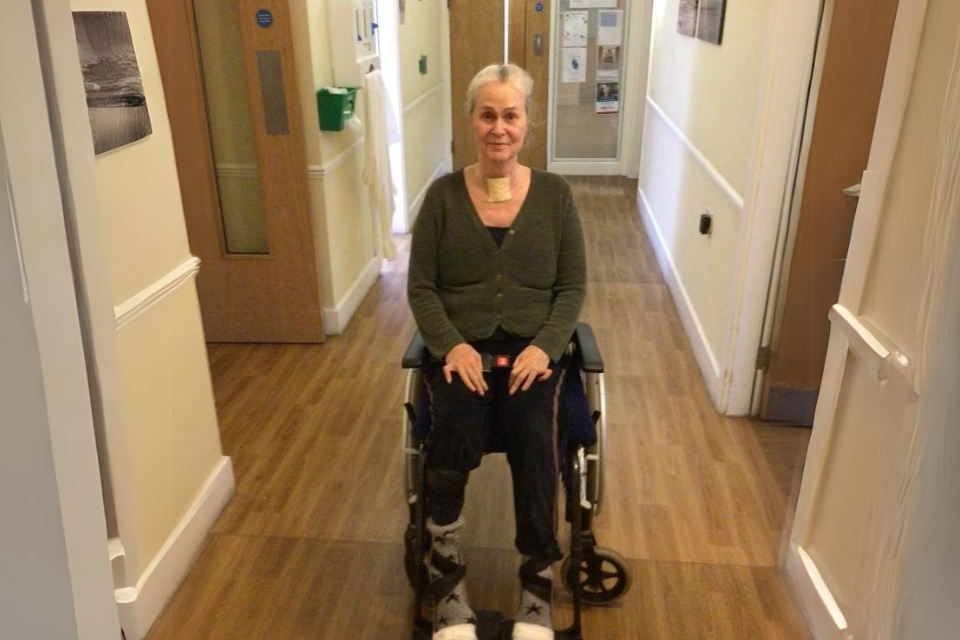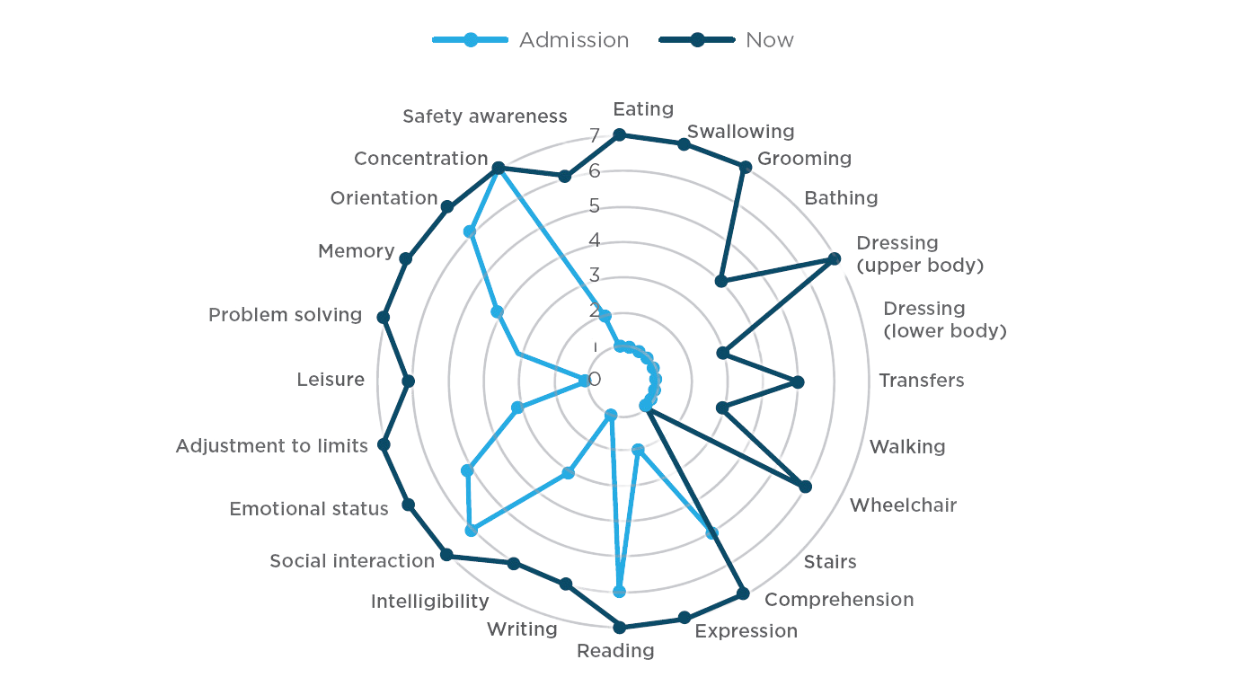Gwenda's story
Learn about the rehabilitation programme Gwenda underwent at Cleveland House, and the positive outcomes she has since achieved.

Following a fall at home, Gwenda developed central pontine myelinolysis (CPM), a rare brain disorder. This caused her to suffer from locked-in syndrome, which meant she was paralysed, only having movement in her eyes.
She came to Cleveland House to undergo her rehabilitation in a community setting.
When Gwenda first arrived, she struggled to come to terms with the loss of independence that had resulted from her paralysis. She relied on a percutaneous endoscopic gastrostomy (PEG) for nutrition, and needed full support with all aspects of her daily living. Her tracheostomy had left her unable to communicate, which caused her to suffer with low mood. Despite this, she was determined to make progress in her recovery.
At Cleveland House, Gwenda received regular input from the service’s multidisciplinary team (MDT), including a physiotherapist, occupational therapist, and speech and language therapist. They assessed her needs and developed support plans with input from her family and professionals. The MDT were confident that with the right support, Gwenda could regain the skills she had prior to her injury.
The staff have really helped me come all this way, I look back in amazement at how much I have improved. The progress has been gradual but there has always been progress.
I had a hospital admission last year, and it really made me appreciate the therapy team at Cleveland House - the difference in what they can offer is apparent. I understand how busy the hospital therapy teams are but it’s a considerable difference between what they can offer and what I’ve been able to receive at Cleveland House.
Gwenda remained highly engaged in the support she received, and has achieved some incredible outcomes. One of the first changes Gwenda’s support team noticed was improvements to her facial movements. She began by mouthing what she wanted to say, and is now back to communicating verbally. In addition, she no longer requires a tracheostomy and is able to eat food and fluids by mouth.
She has also reached many milestones with her mobility, having worked hard on her core strength and motor skills. Now, she requires minimal assistance with activities of daily living, and can complete her bed and standing transfers, stand to a return, and self-propel her wheelchair. Currently, she is waiting for surgeries on her foot and ankle, which will enable her to start working on walking again.

Given her progress, she is now preparing to move into her own home in the community with her partner. Everyone at Cleveland House is so proud of Gwenda's achievements and are supporting her with planning her move.